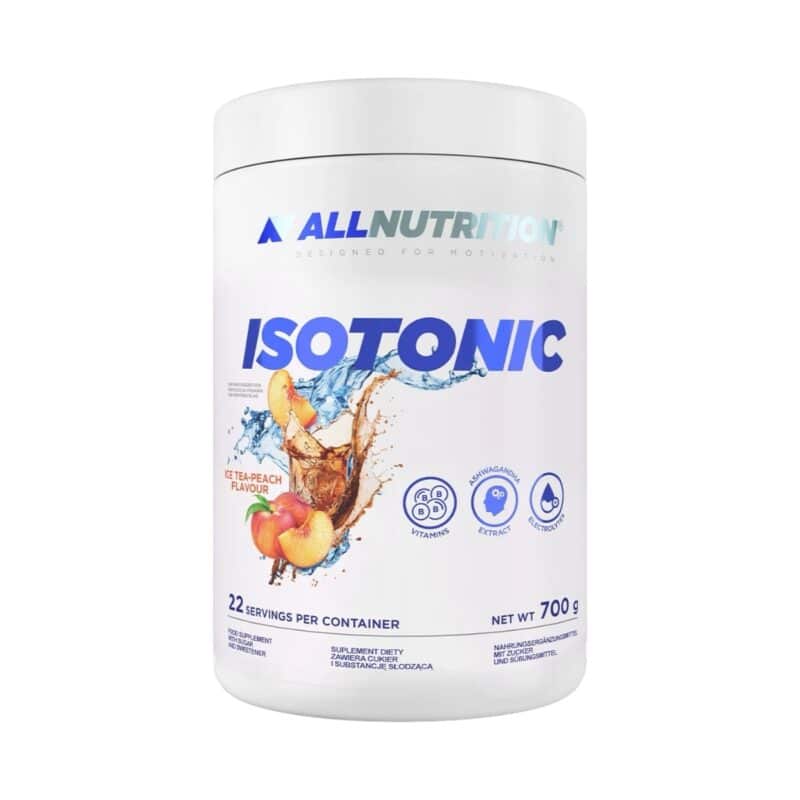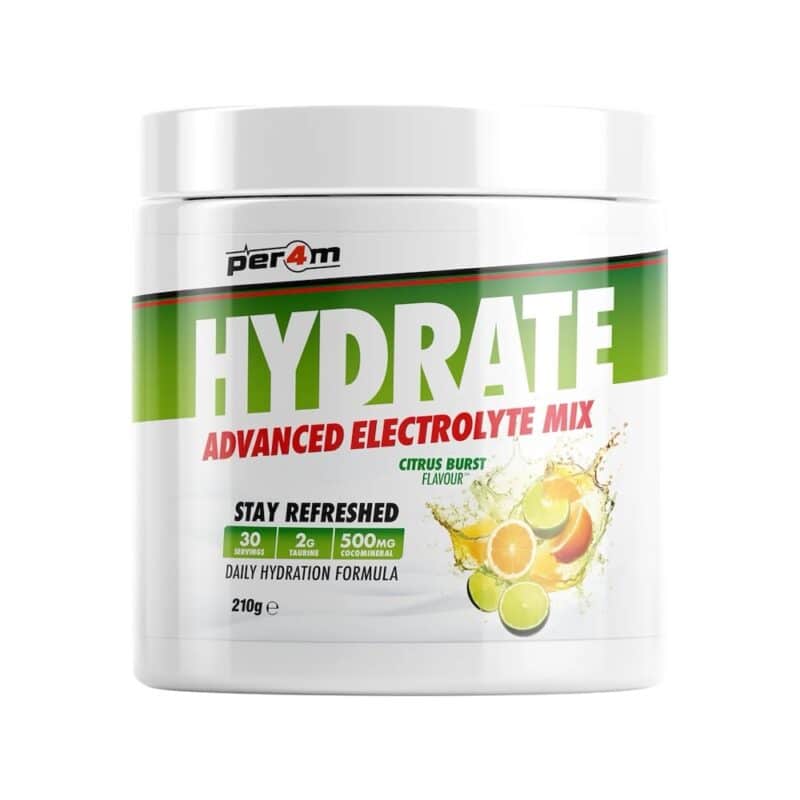“Are you truly staying hydrated every day?” This question highlights the crucial role that electrolyte drinks play in maintaining optimal health and peak performance. Beyond just quenching thirst, electrolyte beverages help regulate fluid balance, support nerve and muscle function, and boost cognitive performance, making them essential for both everyday wellness and effective post-workout recovery. Whether you choose a commercial option or prefer a homemade blend, understanding the key electrolytes and their sources can empower you to make informed hydration choices. By debunking common myths and optimising your intake, electrolyte drinks can be a transformative addition to your daily routine, inspiring you to achieve better health and enhanced physical performance.
- Benefits of Electrolyte Drinks for Everyday Wellness
- Essential Electrolytes and Their Roles in Hydration
- Choosing the Right Electrolyte Drink: Commercial vs. Homemade Options
- Optimising Electrolyte Intake for Post-Workout Recovery
- Debunking Common Myths About Electrolyte Hydration
Benefits of Electrolyte Drinks for Everyday Wellness
Think electrolyte drinks are just for athletes? Think again. Daily hydration isn’t just about water intake; it’s about balancing those crucial minerals that keep your body ticking. From the moment you wake up, electrolytes help maintain your fluid balance, ensuring every cell gets the hydration it needs to function optimally. Whether you’re powering through a hectic workday or tackling household chores, electrolyte drinks provide the support your body silently demands.
But it’s not just about staying hydrated. Electrolytes play a pivotal role in nerve and muscle function, preventing those annoying cramps and jitters that can derail your day. Imagine breezing through your tasks without the afternoon slump—thanks to the cognitive boost that properly balanced electrolytes offer. Many users swear by their morning electrolyte boost, reporting enhanced mental clarity and sustained energy levels that keep them sharp from morning till night.
Don’t just take our word for it. Jane, a busy marketing executive, shares, “Since I started incorporating electrolyte drinks into my daily routine, I’ve noticed a significant improvement in my focus and overall energy. It’s a game-changer for my productivity.” Indeed, integrating electrolyte drinks into your everyday wellness regimen isn’t just a trend; it’s a smart move for anyone looking to enhance their health and performance effortlessly.
Essential Electrolytes and Their Roles in Hydration
Staying properly hydrated isn’t just about drinking water; it’s about maintaining the right balance of electrolytes in your body. These vital minerals, including sodium, potassium, magnesium, and calcium, play a crucial role in everything from muscle function to nerve signaling. Without adequate electrolytes, even the simplest activities can leave you feeling drained and sluggish.
Take sodium, for example. It’s essential for regulating fluid balance and ensuring that your muscles and nerves work efficiently. Potassium, on the other hand, is key for heart health and preventing cramps during intense workouts. Magnesium supports muscle recovery and energy production, while calcium is indispensable for strong bones and proper muscle function. Incorporating foods like bananas, leafy greens, nuts, and dairy products can help you maintain these critical levels.
Consider the case of Sarah, a dedicated runner who struggled with frequent muscle cramps and fatigue. By integrating an electrolyte-rich diet and using specialized electrolyte drinks post-workout, she not only alleviated her symptoms but also enhanced her overall performance. This transformation highlights how understanding and managing your electrolyte intake can lead to significant improvements in both daily activities and athletic endeavors.
Electrolyte | Role in the Body | Sources |
|---|---|---|
Sodium | Regulates fluid balance, supports muscle and nerve function | Table salt, soups, processed foods |
Potassium | Maintains heart rhythm, prevents muscle cramps | Bananas, oranges, spinach |
Magnesium | Assists in muscle recovery, energy production | Nuts, whole grains, leafy vegetables |
Calcium | Strengthens bones, supports muscle function | Dairy products, fortified plant milks, tofu |
Choosing the Right Electrolyte Drink: Commercial vs. Homemade Options
When it comes to hydration, selecting the right electrolyte drink can make all the difference. Commercially available options offer convenience and consistent ingredient quality, making them a go-to for many. They are specially formulated to provide a balanced mix of sodium, potassium, and other essential electrolytes, ensuring you stay energized and recovered, whether you’re hitting the gym or navigating a busy day. However, these drinks can sometimes be expensive and may contain added sugars or artificial flavours that aren’t ideal for everyone.
On the flip side, homemade electrolyte solutions provide customization and are often more cost-effective. By mixing simple ingredients like coconut water, a pinch of sea salt, and a splash of natural fruit juice, you can create a personalized drink tailored to your taste and nutritional needs. Experts advise that homemade options allow for better control over the ingredient quality, avoiding unnecessary additives and reducing caloric intake. Plus, making your own electrolyte drink can be a fun and creative way to ensure you’re consuming a healthy, natural hydration solution.
To strike the perfect balance, consider your lifestyle and hydration goals. If you value speed and convenience, a commercial electrolyte drink might be your best bet. However, if you prefer customizability and cost savings, crafting your own solution at home could be more beneficial. Ultimately, the choice hinges on your personal preferences and what aligns best with your health objectives.
Optimising Electrolyte Intake for Post-Workout Recovery
After smashing a tough workout, your body craves more than just water. Electrolyte replenishment plays a crucial role in post-workout recovery, helping to restore the balance of minerals lost through sweat. Depending on the intensity and duration of your exercise, the amount and timing of electrolyte intake can vary significantly. For example, after a high-intensity interval training (HIIT) session, consuming a drink rich in sodium and potassium within 30 minutes can accelerate muscle recovery and reduce cramps.
Tailoring your electrolyte intake to the type of workout you engage in ensures optimal hydration and performance. Endurance athletes, such as marathon runners, might benefit from electrolyte beverages that include magnesium and calcium to support prolonged muscle function. On the other hand, those engaging in strength training may focus on electrolyte-rich snacks or drinks that aid in muscle repair and growth. A simple post-workout recipe could include a mix of coconut water, a pinch of sea salt, a splash of orange juice, and a teaspoon of honey to create a balanced and refreshing electrolyte drink.
Incorporating these tailored electrolyte strategies into your routine not only enhances recovery but also prepares your body for the next workout. By understanding when and how much to consume based on your unique fitness regimen, you can maintain optimal hydration levels and boost overall performance. Experimenting with different recipes and monitoring your body’s response will help you find the perfect electrolyte balance to keep you at your best.
Debunking Common Myths About Electrolyte Hydration
When it comes to electrolyte hydration, several misconceptions can cloud judgment and lead to ineffective hydration strategies. Understanding the truth behind these myths is crucial for anyone looking to maintain optimal hydration levels.
- Myth: All electrolyte drinks are packed with sugar.
Fact: Contrary to popular belief, many modern electrolyte beverages offer low or zero-sugar options, allowing individuals to stay hydrated without the added calories. - Myth: Electrolytes are only necessary for athletes or intense workouts.
Fact: Electrolytes are essential for everyone’s daily bodily functions, including nerve transmission and muscle contraction. Maintaining proper electrolyte balance benefits overall health, not just athletic performance. - Myth: Drinking more water alone is sufficient for hydration.
Fact: While water is vital, it doesn’t replace the need for electrolytes. Without adequate electrolytes, the body can struggle to retain water, leading to suboptimal hydration.
A notable case study conducted by the University of Health Sciences demonstrated that participants who incorporated balanced electrolyte drinks into their daily routine experienced improved cognitive function and reduced instances of fatigue compared to those who relied solely on water for hydration. This highlights the broader benefits of proper electrolyte intake beyond physical activity.
Frequently Asked Questions
How often should I consume electrolyte drinks for everyday hydration?
For everyday hydration, it’s generally sufficient to drink water and maintain a balanced diet rich in natural electrolytes. However, if you have an active lifestyle, live in a hot climate, or experience high levels of stress, incorporating an electrolyte drink once a day can help maintain optimal fluid balance and bodily functions.
Can I get enough electrolytes from my regular diet without supplements?
Yes, you can obtain sufficient electrolytes from a balanced diet. Foods like bananas, nuts, dairy products, leafy greens, and whole grains are excellent sources of potassium, calcium, magnesium, and sodium. However, in certain situations such as intense workouts or illness, supplements or electrolyte drinks can help meet increased needs.
What should I look for on the label when buying a commercial electrolyte drink?
When choosing a commercial electrolyte drink, check for the balance of key electrolytes such as sodium, potassium, magnesium, and calcium. Be mindful of added sugars and artificial ingredients, opting for products with natural ingredients and lower sugar content. Additionally, consider the drink’s calorie count and any specific dietary needs you may have.
How can I adjust my electrolyte intake in different climates or during illness?
In hot climates or during intense physical activity, you lose more electrolytes through sweat and may need to increase your intake accordingly. Similarly, during illnesses that cause vomiting or diarrhea, replenishing electrolytes is crucial to prevent dehydration. In such cases, using oral rehydration solutions or electrolyte-rich drinks can help restore balance more effectively.



